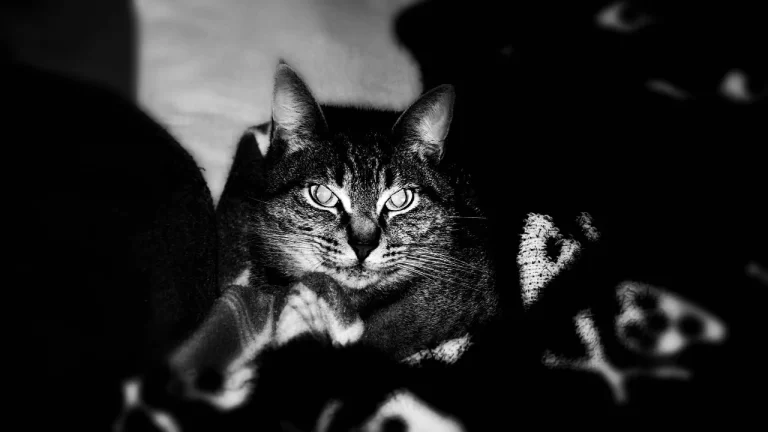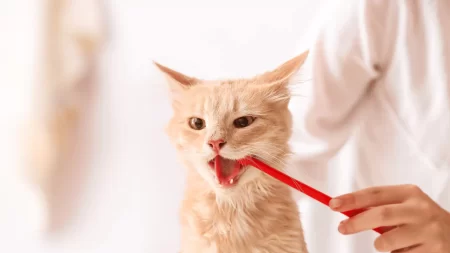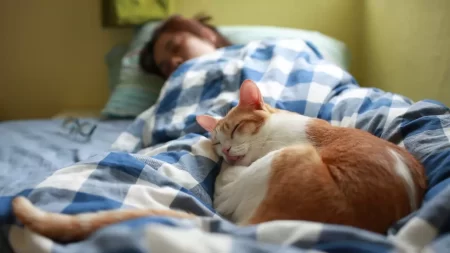No, cats are not inherently evil creatures. While myths and superstitions have portrayed cats as evil or demonic throughout history, modern understanding of cat behavior and psychology indicates that cats are not predisposed towards wickedness or malevolence.
Cats behave according to their natural instincts and upbringing, forming unique personalities like any other being.
Their perceived evil reputation stems from misinterpreting normal feline activities, misattributing malice to their independence, and misunderstanding their body language and communication styles compared to other pets like dogs.
With proper socialization and care, the vast majority of cats develop affectionate and trusting bonds with their human companions.
The Perception of Cats as Evil
Historical Beliefs and Superstitions
Throughout history, cats have been associated with witchcraft, paganism, magic, and the supernatural. In medieval times, people believed black cats were the familiars of witches or shape-shifting sorcerers. The Catholic church condemned cats as evil during the Spanish Inquisition. In various cultures, black cats are considered unlucky omens bringing bad fortune. This fearful perception of cats originated from superstition rather than reality.
Negative Portrayal in Media and Literature
The characterization of cats as sneaky, mean, or cunning villains also contributes to public misperceptions. In books, TV shows, movies, and cartoons, cats are often portrayed as the creepy henchmen of evil scientists, the minions of dark lords, or embodiments of mischief and malevolence. While entertaining, this form of fictional stereotyping can subtly bias people’s attitudes toward real-world felines.
Understanding Cat Behavior
Natural Instincts and Behaviors
Much of cats’ supposedly evil behaviors stem from their natural instincts as solitary hunters. Cats stalk, pounce, scratch, and bite out of predatory instinct, not malicious intent. They play with their food because their wild ancestors needed practice to dispatch live prey. And they can be territorial due to their origins as solitary creatures, not due to wickedness.
Socialization and Upbringing
Proper socialization makes kittens friendlier and less aggressive towards people and other pets. However, undersocialized cats who lack enough positive human contact as kittens are more likely to display unfriendly behaviors. A cat biting or scratching is often a sign of fear, not evilness. Their upbringing shapes their personality.
Individual Personalities
Cats display a full range of personalities, from extra-loving to quite aloof. No personality or temperament is inherently good or evil. Some cats bond deeply with their families, while others are more independent. But a standoffish cat is not morally worse than an affectionate one. Their varied personalities arise from innate differences between individuals.
Debunking the Myth of Evil Cats
The Positive Impact of Cats on Mental Health
Numerous studies demonstrate the benefits of cat companionship for depression, anxiety, and emotional well-being. The affection and calming presence provided by pets explain why therapy cats are used in hospitals, nursing homes, and college campuses. Far from being malevolent, cats provide comfort and therapeutic stress relief.
Acts of kindness and Affection
While their expressions of affection differ from dogs, cats form close attachments and display kindness towards their families. Examples of hero cats saving human lives hit the news regularly. Many cat owners have stories of their kitties alerting them to health emergencies or providing friendship during difficult times. These acts illustrate their capacity for loyalty, compassion, and selfless behavior.
Expert Opinions on Cats’ “Evil” Reputation
Scientific Research on Cat Behavior
Animal behaviorists have extensively studied the social dynamics and communication styles of felines. Research reveals that common undesirable cat behaviors like biting or scratching stem from stress, lack of socialization, or confusion over human cues. With an effort to understand their nonverbal signals, humans can positively influence cat conduct. No inherent evil motivates cats.
Misinterpretation and Misunderstandings
Zoologists largely agree that the historical and cultural perception of cats as wicked is unfounded. Cats do not possess morality or evil intentions. Instead, their behaviors were misinterpreted due to differences from humans or other domesticated animals. With knowledge of cat psychology and communication, experts affirm cats have no greater tendency toward evil than any other creature.







